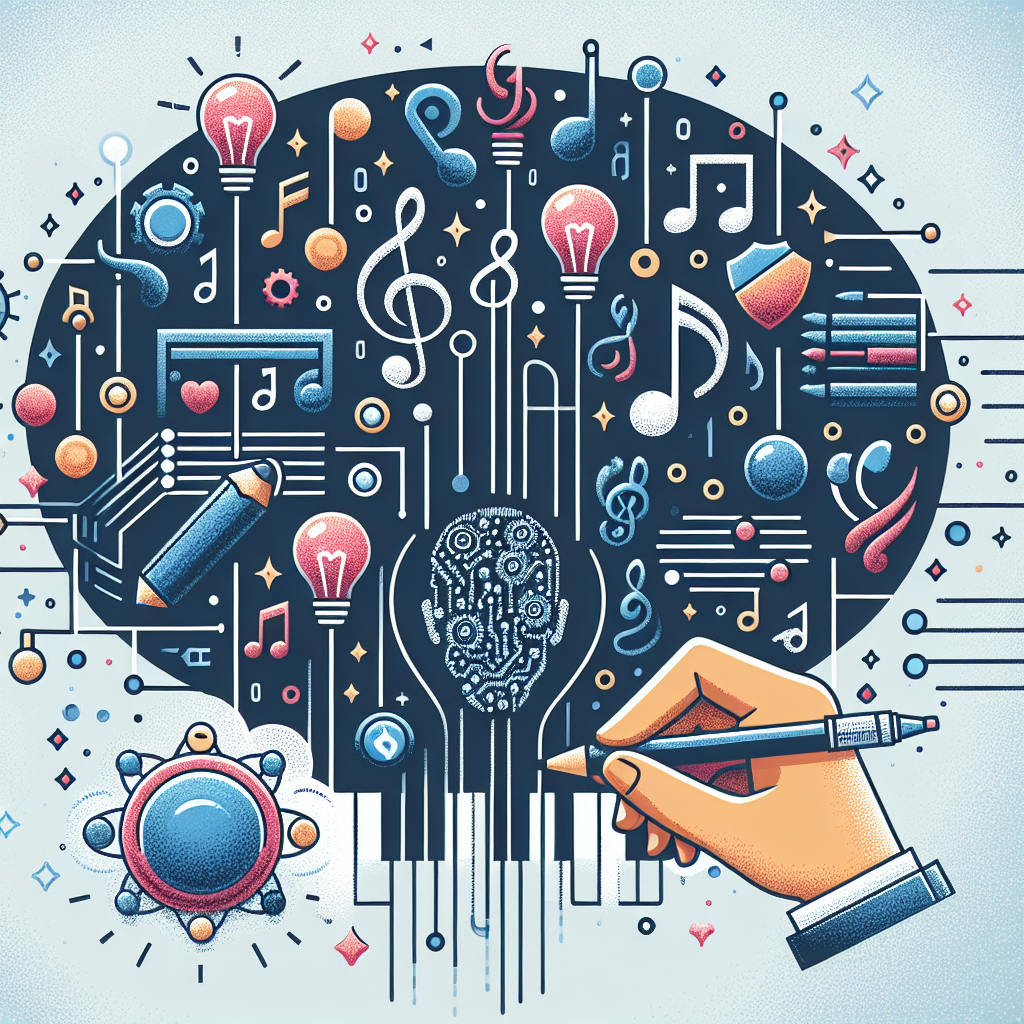In recent years, artificial intelligence (AI) has made significant advancements in various industries, including music education. AI technology has the potential to enhance creativity and innovation in music education by providing students with personalized learning experiences, real-time feedback, and new tools for composition and performance. This article will explore the ways in which AI is revolutionizing music education and how it can benefit both students and educators.
One of the primary ways in which AI is transforming music education is through personalized learning experiences. AI-powered learning platforms can analyze students’ performance data and learning styles to create customized lesson plans that cater to their individual needs and preferences. This allows students to learn at their own pace and focus on areas where they need the most improvement, ultimately leading to more effective and efficient learning outcomes.
Additionally, AI technology can provide real-time feedback to students during practice sessions and performances. For example, AI-powered software can analyze a student’s playing technique, pitch accuracy, and rhythm to provide instant feedback on areas that need improvement. This immediate feedback can help students make adjustments in real-time and accelerate their learning progress.
Furthermore, AI can provide students with new tools for composition and performance. For example, AI algorithms can generate musical accompaniment based on a student’s input, allowing them to explore different musical styles and genres. Additionally, AI can analyze a student’s musical preferences and suggest new pieces or exercises to help them expand their repertoire and develop their musical skills.
In addition to benefiting students, AI technology can also support music educators in their teaching practices. AI-powered platforms can assist educators in creating lesson plans, grading assignments, and tracking student progress more efficiently. This can free up educators’ time to focus on providing personalized feedback and guidance to students, ultimately enhancing the quality of music education.
Despite the numerous benefits of AI in music education, some may have concerns about its impact on creativity. Critics argue that AI-generated music lacks the emotional depth and authenticity of human-created music. However, AI technology should be seen as a tool to enhance creativity rather than replace it. By providing students with new tools and opportunities for exploration, AI can inspire creativity and innovation in music education.
FAQs:
1. Can AI replace human music educators?
While AI technology can support music educators in their teaching practices, it cannot replace the personalized guidance and mentorship that human educators provide. AI should be seen as a tool to enhance creativity and learning outcomes in music education, rather than as a replacement for human educators.
2. How can AI enhance creativity in music education?
AI technology can enhance creativity in music education by providing students with new tools for composition and performance, personalized learning experiences, and real-time feedback. By leveraging AI-powered platforms, students can explore new musical styles and genres, receive instant feedback on their performance, and develop their musical skills in a more efficient and effective manner.
3. What are the potential drawbacks of using AI in music education?
Some potential drawbacks of using AI in music education include concerns about the impact on creativity and the authenticity of music created using AI algorithms. Critics argue that AI-generated music lacks the emotional depth and authenticity of human-created music. However, AI technology should be seen as a tool to enhance creativity rather than replace it.
4. How can music educators incorporate AI into their teaching practices?
Music educators can incorporate AI into their teaching practices by using AI-powered platforms to create personalized lesson plans, provide real-time feedback to students, and track student progress more efficiently. By leveraging AI technology, educators can enhance the quality of music education and inspire creativity and innovation in their students.
In conclusion, AI technology has the potential to revolutionize music education by enhancing creativity, providing personalized learning experiences, and supporting both students and educators in their teaching practices. By leveraging AI-powered platforms and tools, music educators can inspire creativity and innovation in their students and enhance the quality of music education. While there may be concerns about the impact of AI on creativity, it should be seen as a tool to enhance rather than replace human creativity in music education.

